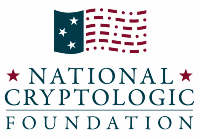On 9-10 November 2019, Dr. Melissa Dark, CCEI’s Curriculum Lead, Mr. Ernie Ferraresso, CYBER FL, and Mark S Loepker, Cyber Center for Education and Innovation (CCEI) Education Program Director, joined forces to engage attendees of the 2019 NICE K-12 Conference held in Orange County, California. The Conference’s theme was Innovation, Vision, and Imagination; Harnessing the talent of today to build the cybersecurity workforce of the future.
Children today live in a cyber world, yet these tenants are lacking in K-12 schools. While we teach children the worldly aspects of biology, geology, mathematics, history, English, literature, and science, cyber is absent.
Mr. Ferraresso and Mr. Loepker held a fireside chat to examine the challenges, benefits, and methods of weaving relevant cybersecurity educational components into existing K-12 lessons in history, social studies, mathematics, and other subjects. Leveraging the CCEI’s High School Cybersecurity Curriculum Framework (CCF) to guide content development, they discussed the benefits of including cyber knowledge into everyday topics.
During engagements with 4th and 5th graders using CCEI’s virtual classroom engagement capability (ccei.nepris.com), these students did not understand fundamental INTERNet principles, such as the permanence of information posted online or that friending unknown people in the virtual world is the same as getting into a stranger’s car.
Mr. Ferraresso and Mr. Loepker provided examples of incorporating cybersecurity material into current classroom content, such as weaving information about how General Washington utilized a network of spies and secret codes to obtain information on British activities into a Revolutionary War lesson, and using cryptography as a teaching tool in a mathematics class.
Mr. Ferraresso and Mr. Loepker emphasized the need for dedicated cybersecurity classroom materials, as well as ways to infuse cyber information into existing classroom content, wherever possible. They acknowledged this is a long-term project and asked attendees about their interest and ideas. Many attendees recommended leveraging a constellation of K-12 teachers to share ideas, content, and grow this idea as a grassroots effort. Receiving an overwhelming affirmation of support, the presenters requested volunteers explore the opportunity to start a NICE K-12 subgroup committee to work the effort.
In a separate session, Dr. Melissa Dark provided an overview of and access to instructional materials developed with the goal of integrating cybersecurity into the Advanced Placement Computer Science Principles (AP CSP) curriculum. AP CSP is a new and rapidly growing course; introduced in 2015. Over 150,000 students took this high school course in 2018-19. By integrating cybersecurity into AP CSP, we are exposing thousands of students.
Dr. Dark was joined by her CCF development team members, Mr Mark Emry and Dr. Jenny Daugherty. Together they discussed their efforts to infuse AP CSP with cybersecurity principles outlined in the CCEI CCF.
Common to both discussions is promoting the need for a coherent cybersecurity K-12 curriculum framework that sets the parameters, directions and standards for curriculum policy and practice. This framework enables educators to effectively plan properly sequenced activities to provide learning opportunities targeting desired learning outcomes. In addition, and in parallel, there is a need to infuse cyber information into current multi-discipline curriculum, thereby raising the awareness and knowledge of cyber and the potential career opportunities available. This dual approach ensures K-12 is prepared to meet cyber challenges and address the overwhelming need for cyber professionals.
Please visit CCEI’s Overview page on the NCMF website for details.

